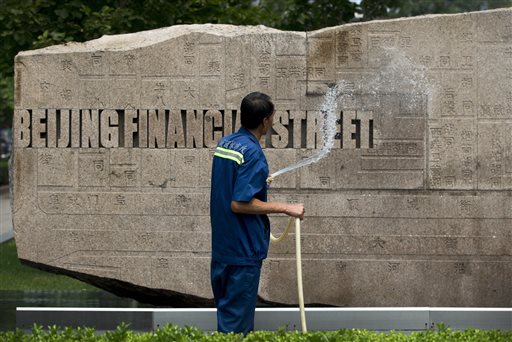China introduces measures to boost confidence
The People’s Bank of China gave no indication how much money it might inject into the system. “This has led to intense liquidity in the market”, said Deng Ge, spokesman of the China Securities Regulatory Commission.
The insurance regulator said the proportion of their assets Chinese insurers are allowed to invest in stocks will be increased to 40 percent from 30 percent.
“For the goal of a supporting the stock market’s stable development, the People’s Bank of China will actively assist China Securities Finance to have liquidity by way of repo, collateral lending or issue financial debt papers”, the PBOC said in a statement posted on its website on Wednesday.
The state asset regulator orders the country’s centrally administered state-owned enterprises not to sell shares of their listed companies amid “abnormal market volatility”. But the plethora of measures failed to stop the tumble in A shares with the CSI 300 index closing down 6.8 percent yesterday.
Chinese authorities have tried to reassure investors that the price decline is normal following a boom that saw the Shanghai Composite Index soar by more than 150 per cent since late 2014. But shares in smaller companies have fallen. Yet the Hong Kong-listed ETF tracking ChiNext (3147) tumbled 26 percent. The party wants to encourage stock ownership but small investors whose holdings have plunged in value say they will no longer buy shares.
The China Securities Regulatory Commission has prohibited major shareholders and senior executives of listed companies from selling stocks in their own firms for at least six months.
More than 1,400 firms in Shanghai and Shenzhen – making up half of total listings – have halted trading of their own accord. Even during the “blackout period” – just before financial results are revealed – managers can now buy shares in their firms.
China’s benchmark stock market has lost more than 30 percent in a nosedive fall since June 12 despite government efforts to end the rout, including cuts in interest rates and banks’ required reserve ratio.
Commodities also fell as China’s stock crash has darkened the outlook of the country’s economy, the largest buyer of copper and gold, according to The Wall Street Journal.








